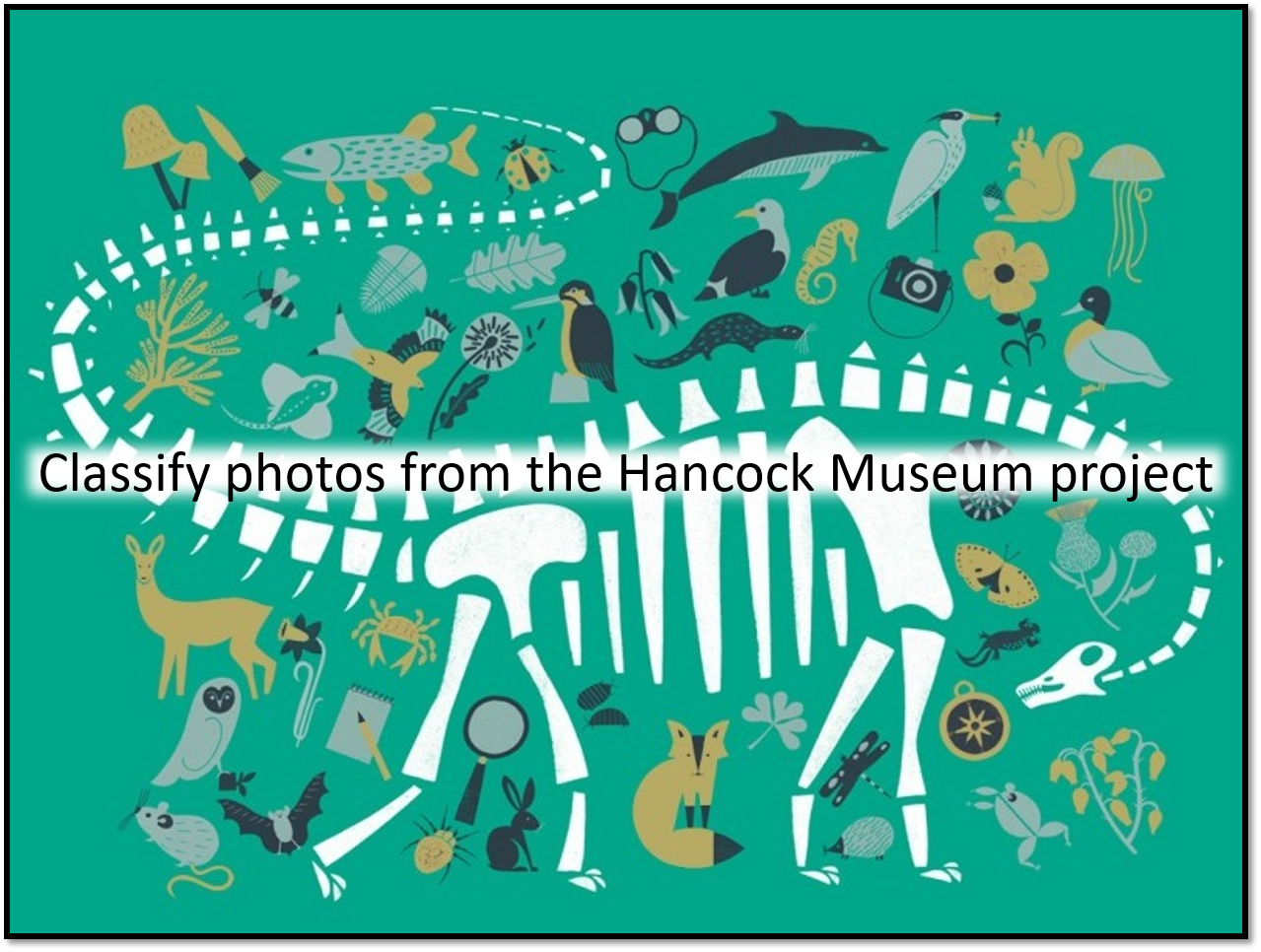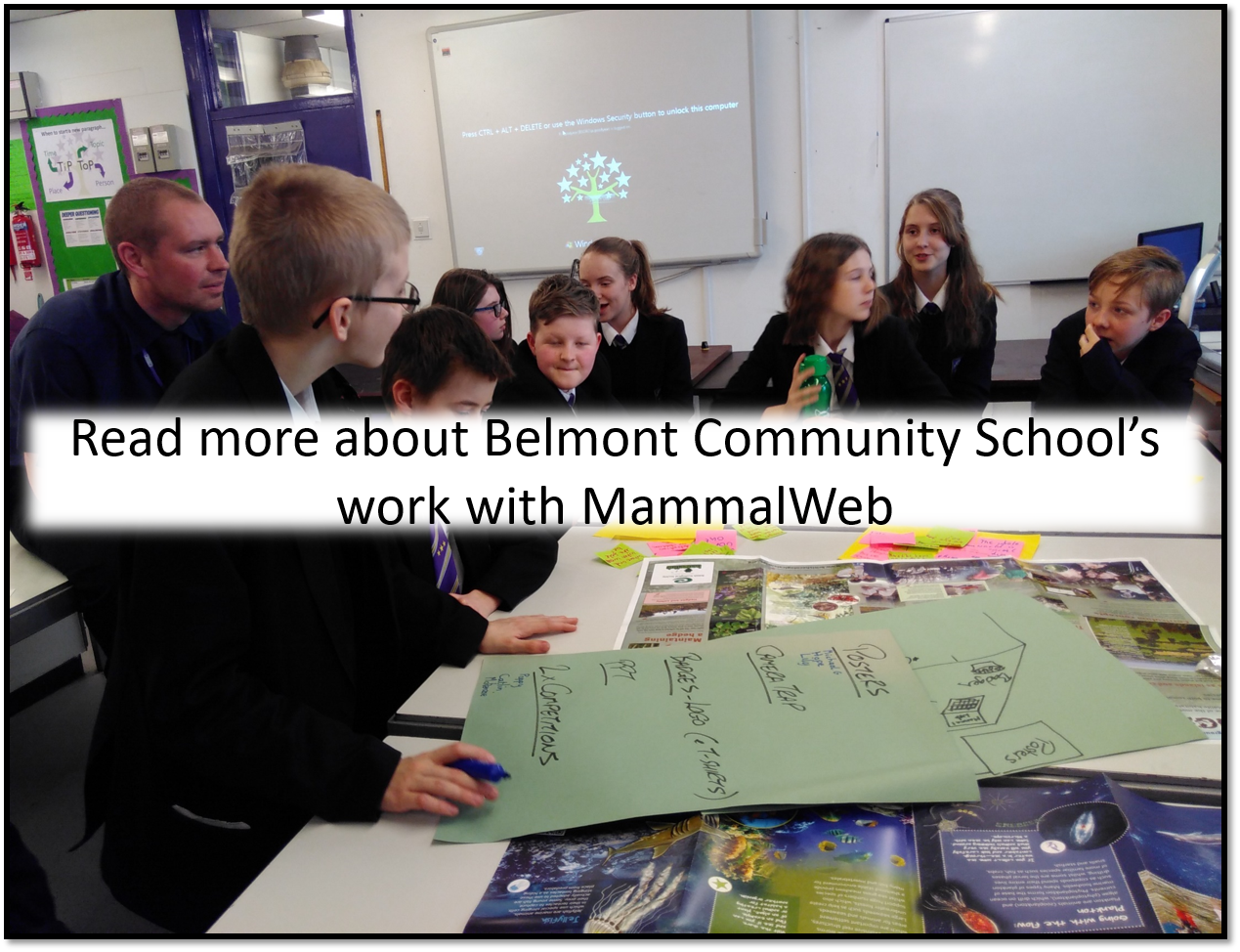MammalWeb has worked with a number of primary and secondary schools over the past few years and we anticipate that this work will expand over years to come. On this page, you'll find information about past and current projects involving MammalWeb and partner schools. There is also information and resources for teachers who are currently using MammalWeb in their school or would like to in the future! If you would like any more information about any aspect of this page, or how MammalWeb could work in your school, then we'd love to hear from you. Please email: This email address is being protected from spambots. You need JavaScript enabled to view it..
Encounters
As part of the 'Connecting Schools to Nature' project, MammalWeb, along with partners the British Ecological Society and SMASH-UK, developed a new digital platform for primary schools. The platform has been co-created with teachers and includes >130 resources such as lesson plans, worksheets and digital assemblies, all designed to increase pupils' connection to nature in school. There is a badge scheme which can be worked through as a class or with individual pupils, completing activities to gain bronze, silver or gold level certificates. When you register on the platform, you will also be set up with your own project on MammalWeb, to which you can then upload images from a camera trap, sharing the link with other teachers and parents to see what you have captured. If you don't have a camera trap yet, then don't worry: you can still register on Encounters and get access to all of the resources and activities, including classifying camera trap images from other projects. Click on the image below to start exploring and drop us an email if you have any questions: This email address is being protected from spambots. You need JavaScript enabled to view it..
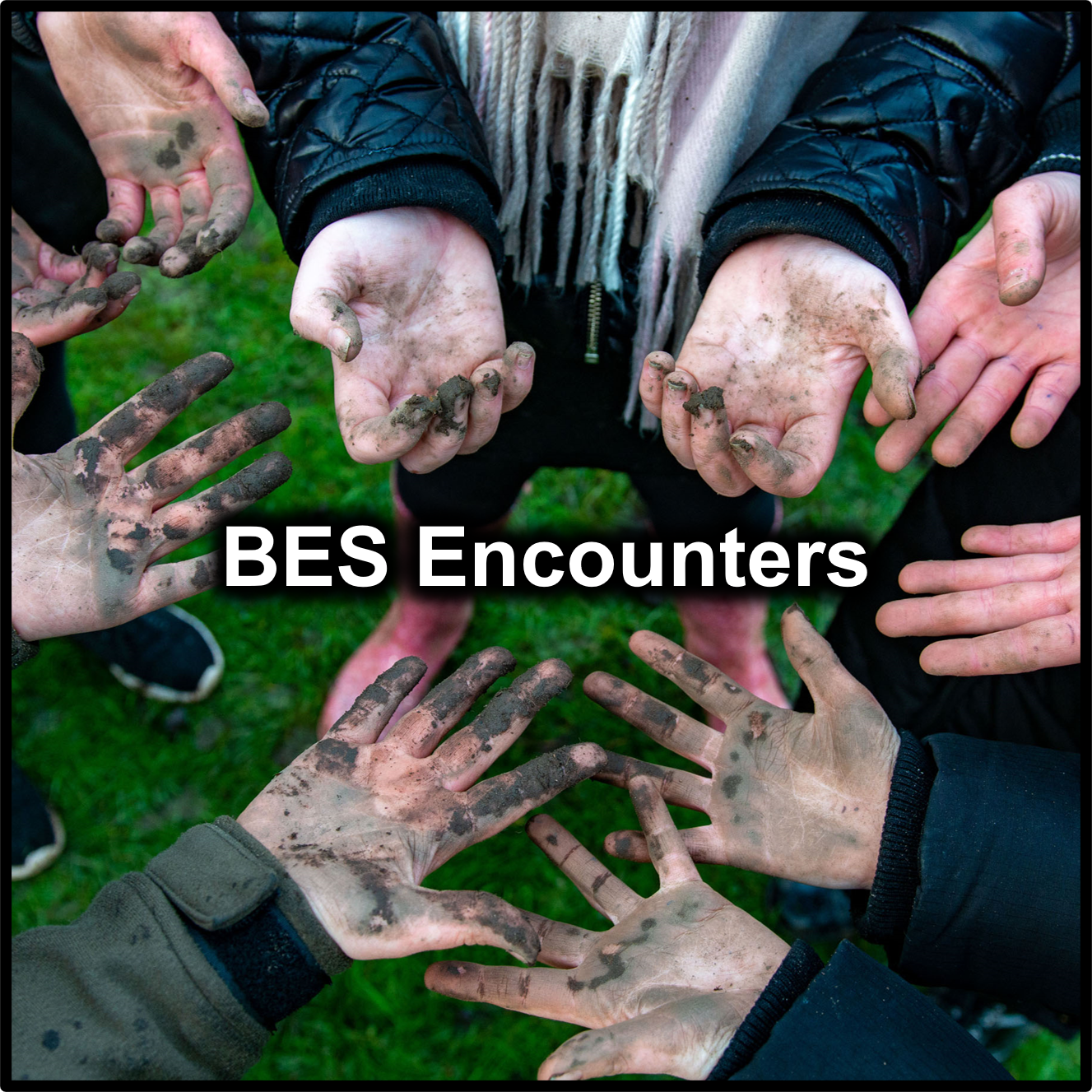 |
 |
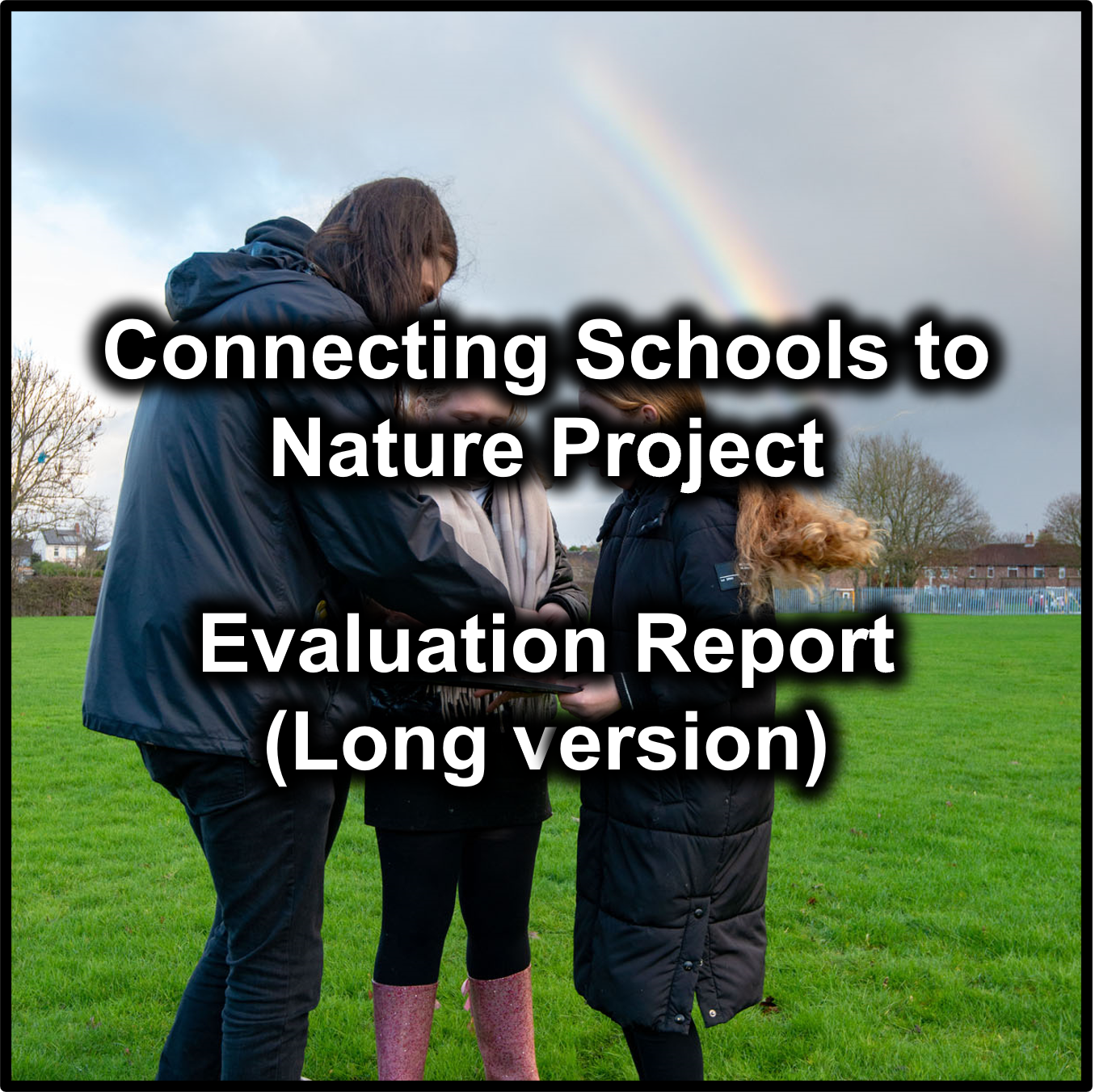 |
Where can I get a camera trap?
If you would like a camera trap to use in your school, there are two options:
1) Buy a camera trap - Over the past decade, camera traps have come down in price significantly, meaning buying a camera trap is now an option to many more people. We recommend buying a camera trap from our partners, NatureSpy. NatureSpy sell all of the best camera traps on the market, at an affordable price (starting from as little as £100-£120), and profits go towards funding conservation projects around the world. Furthermore, if you contact us at This email address is being protected from spambots. You need JavaScript enabled to view it., we may be able to give you a discount code to further reduce costs. We understand money can be tight in schools so, below, we've put together a short list of ideas of how to raise money for a camera trap. You will also find links to the NatureSpy website, and a guide to buying your first camera trap below.
- Hold a coffee morning.
- Fancy dress day - dress up as your favourite animal!
- Run a wildlife photography competition.
- Through science club/other school clubs.
- Ask for parent donations.
- Apply for a grant. There are grants available to schools to run projects (small or large scale) relating to the environment. Click here or here for lists of grants for which you may be eligible.
 |
 |
2) Borrow a camera trap from MammalWeb - If you are taking part in a funded project with MammalWeb then we may have a small number of camera traps available to lend out to schools. You will have heard about this when you signed up to participate.
How do I set my camera trap up?
Setting up a camera trap is really simple; however, there are some things you can do to make sure you get the most out of your camera. The thing that most people struggle with is where to place the camera trap. We've put together the camera placement guide below which will give you some ideas on where to put your camera.
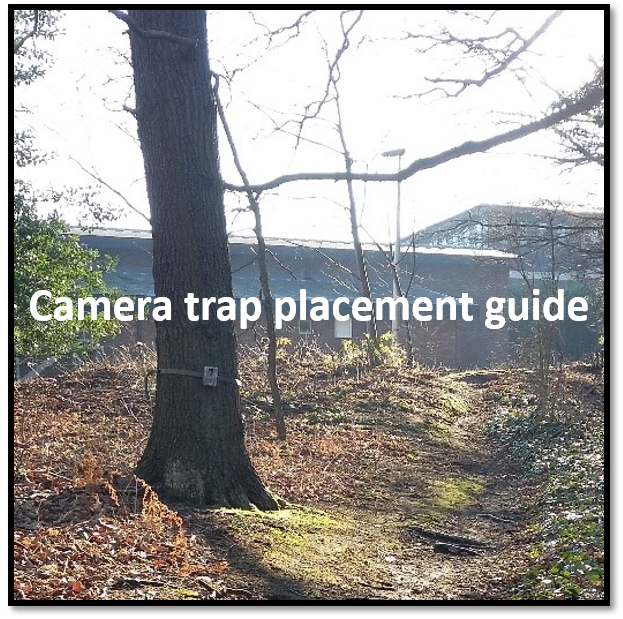 |
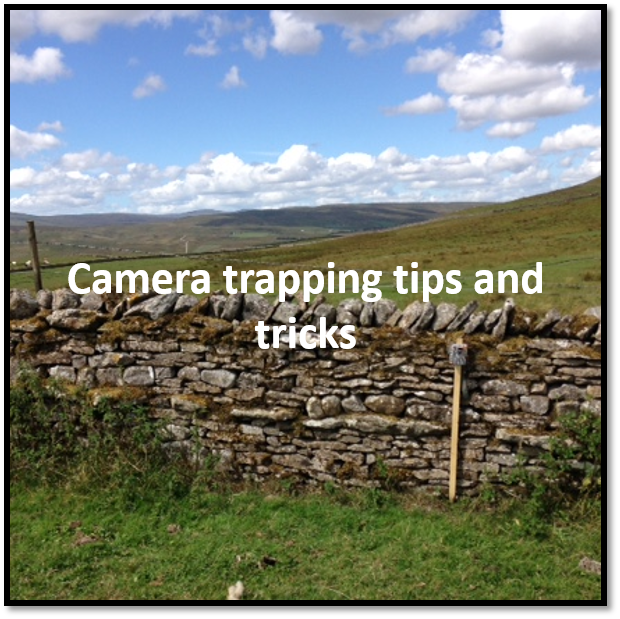 |
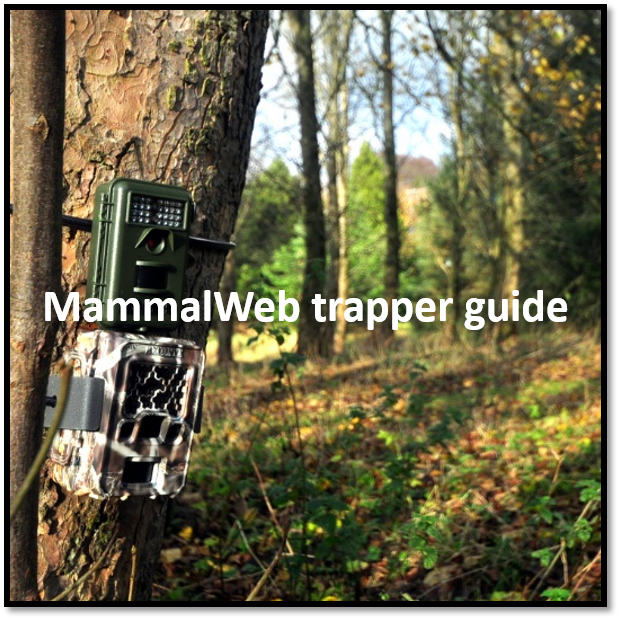 |
Information and resources for teachers (Primary)
Curriculum links
The MammalWeb project could help support learning across a number of areas of the national curriculum. Below are examples of some of these areas.
- KS1 Yr 1: ‘identify and name a variety of common animals including fish, amphibians, reptiles, birds and mammals.’
- KS1 Yr 1: ‘identify and name a variety of common animals that are carnivores, herbivores and omnivores.’
- KS1 Yr 1: ‘describe and compare the structure of a variety of common animals (fish, amphibians, reptiles, birds and mammals, including pets)’
- KS1 Yr 2: ‘identify and name a variety of plants and animals in their habitats, including micro-habitats.’
- KS1 Yr 2: ‘identify that most living things live in habitats to which they are suited and describe how different habitats provide for the basic needs of different kinds of animals and plants, and how they depend on each other.’
- KS2 Yr 4: ‘recognise that living things can be grouped in a variety of ways.’
- KS2 Yr 4: ‘explore and use classification keys to help group, identify and name a variety of living things in their local and wider environment.’
- KS2 Yr 6: ‘describe how living things are classified into broad groups according to common observable characteristics and based on similarities and differences, including micro-organisms, plants and animals.’
- KS2 Yr 6: ‘give reasons for classifying plants and animals based on specific characteristics.’
- KS2 Yr 6: ‘identify how animals and plants are adapted to suit their environment in different ways and that adaptation may lead to evolution.’
Activity ideas
Below are some ideas for class activities relating to camera trapping and/or learning about UK mammals. Resources for some of these activities can be found at the bottom of the list. We aim to continue to update this list, so if you have previously designed your own activities, or have ideas for new activities relating to these topics, then please get in touch by emailing: This email address is being protected from spambots. You need JavaScript enabled to view it..
- Setting up the camera trap - get the children to think about where they would put the camera trap in order to get the best photos of animals. They could draw out their perfect spot.
- Animal tracking - when setting up the camera trap, get the children to first look for signs and clues that animals have been there. Poo, footprints, trails, burrows, and evidence of vegetation having been eaten are all signs that animals are around!
- Mammal articulate - getting the children to describe a given mammal species (you could use the picture cards in the resources below) without saying what it is.
- Mammal charades - getting the children to act out a given mammal species (you could use the picture cards in the resources below) without saying what it is.
- Sorting into categories - sorting mammals into different categories e.g. nocturnal/diurnal (comes out in daytime), carnivore/herbivore/omnivore, native/non-native, pet/non-pet, farm animal/non-farm animal, colour of fur, habitat. You could assign categories and get children to sort animals into those categories. Alternatively, you could get the children to sort animals into groups first, and then ask how they have chosen to sort them (focussing on what similarities/differences they have noticed).
- Habitats - learning about what mammals live in which habitats. You could classify photos on MammalWeb from different projects (e.g., within the Hancock museum project there are different habitat categories) and see what different animals you get. As you go through you could get children to write lists of what animals they've found in each habitat.
- Nocturnal/diurnal - similar to above, do some classifying on MammalWeb, get children to write down which animals they see in daytime and which in night-time. You can then determine which are nocturnal and which are diurnal. If you want to add in an extra word, 'crepuscular' means animals that come out at dawn and dusk, which is all of the deer species.
- Adaptations - getting the children to choose an animal that they have seen on MammalWeb and to label/list adaptations of that animal to its surroundings.
- Animal factfiles - get the children to make and/or present factfiles of the species you've captured on your camera trap. The factfile can include information on characteristics, diet, lifecycle, when they're active, if they're native/non-native - and if they're non-native then where they've come from!
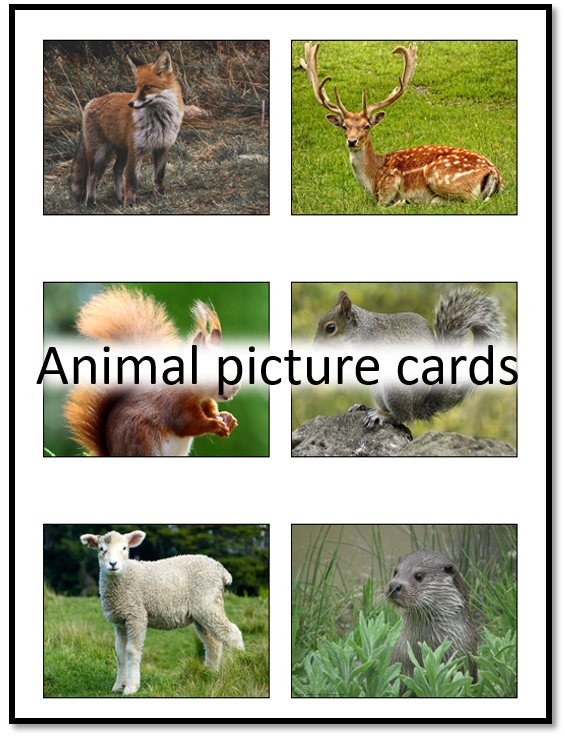 |
 |
 |
Activity ideas (external resources)
Below are links to a number of websites that have ideas and resources for activities and lessons about the environment.
https://www.woodlandtrust.org.uk/naturedetectives/activities/search/?query=&sortby=date&count=10 (KS1/KS2)
https://www.wildlifetrusts.org/actions (KS1/KS2)
https://www.wwf.org.uk/get-involved/schools/resources (KS1/KS2)
https://wildwoodtrust.org/sites/default/files//wildwood-media/Files/ks2-adaptation.pdf (KS2)
Information and resources for teachers (Secondary)
Coming soon!
We are in the process of gathering ideas and making resources for teachers to use in secondary schools. If you are a secondary school teacher and have ideas for how MammalWeb could support learning in your school then please get in touch by emailing: This email address is being protected from spambots. You need JavaScript enabled to view it..
MammalWeb in schools projects
Connecting schools to nature in North-East England
Launched in January 2022, the ‘Connecting schools to nature in North-East England’ project worked with 72 schools and early-career ecologists across the North-East to help inspire both teachers and pupils to engage with the natural world and transform their school grounds into wildlife-friendly havens. Funded by the Green Recovery Challange Fund, MammalWeb was a lead partner in the project along with the British Ecological Society and SMASH-UK. The project reached over 5,000 pupils through a combination of outdoor workshops, teacher training events, and the delivery of a new digital platform “BES Encounters”. As part of the project, schools were given a camera trap to monitor their school grounds and took part in different citizen science initiatives including contributing data to MammalWeb and iNaturalist. Click on the image below to read the evaluation report from the project.
Schools impact study
During 2019, we worked with over 50 primary schools throughout the North East of England. This is part of project looking at whether being involved in the MammalWeb project has a positive impact on teachers, school pupils, and their parents. We looked at two different measures of impact:
1) Knowledge of UK mammals.
2) An individual's connection to nature.
Schools in the project were lent a camera trap to use on their school grounds for one month. They also had either a training session for teachers, or a workshop for school pupils. In these sessions, we told them more about how and why we use camera traps, and the species we capture on them. We assessed what impact being involved in the MammalWeb project has on participants by using short, simple questionnaires. We're currently writing these results up to be published.
The Hancock Museum project
The iconic Diplodocus cast, 'Dippy', that once stood in the Hintze hall of the Natural History Museum in London, is currently on tour! Dippy has already visited Dorset, Birmingham and Belfast, and is currently at the Hancock Museum in Newcastle from the 18/05/2019 to the 06/10/2019. You can read more about 'Dippy on tour' here. As well as educating the general public about extinct wildlife, Dippy on tour also aims to educate and engage people with extant wildlife. As such, we've been working with the Hancock museum on a project where 50 schools across Newcastle, County Durham and Northumberland, have been given a camera trap to see what wildlife is in and around their school grounds. The schools involved are in a range of different habitats including upland, lowland, coastal, woodland and urban, and have been capturing some interesting and varied wildlife! The photos captured by the schools have been uploaded to MammalWeb and displayed on screens around the Natural Northumbria exhibit at the museum. There is an area for each of the five habitats listed previously, and members of the public are invited to help classify the photos captured when they visit museum. You can also classify photos from the project from our website by clicking on the link below.
Belmont Community School
Our work engaging schools with MammalWeb started back in 2015, when PhD student Pen Yuan-Hsing worked with students at Belmont Community School in County Durham. To read an overview of the work done by Pen, with students at Belmont Community School, please click the picture below. To read the final published paper on this work, click here.

 English (United Kingdom)
English (United Kingdom)  Czech (Čeština)
Czech (Čeština)  Nederlands (nl-NL)
Nederlands (nl-NL)  Magyar
Magyar  Deutsch (Deutschland)
Deutsch (Deutschland)  Croatian (Hrvatski)
Croatian (Hrvatski)  Polski (PL)
Polski (PL)  Español (España)
Español (España) 


